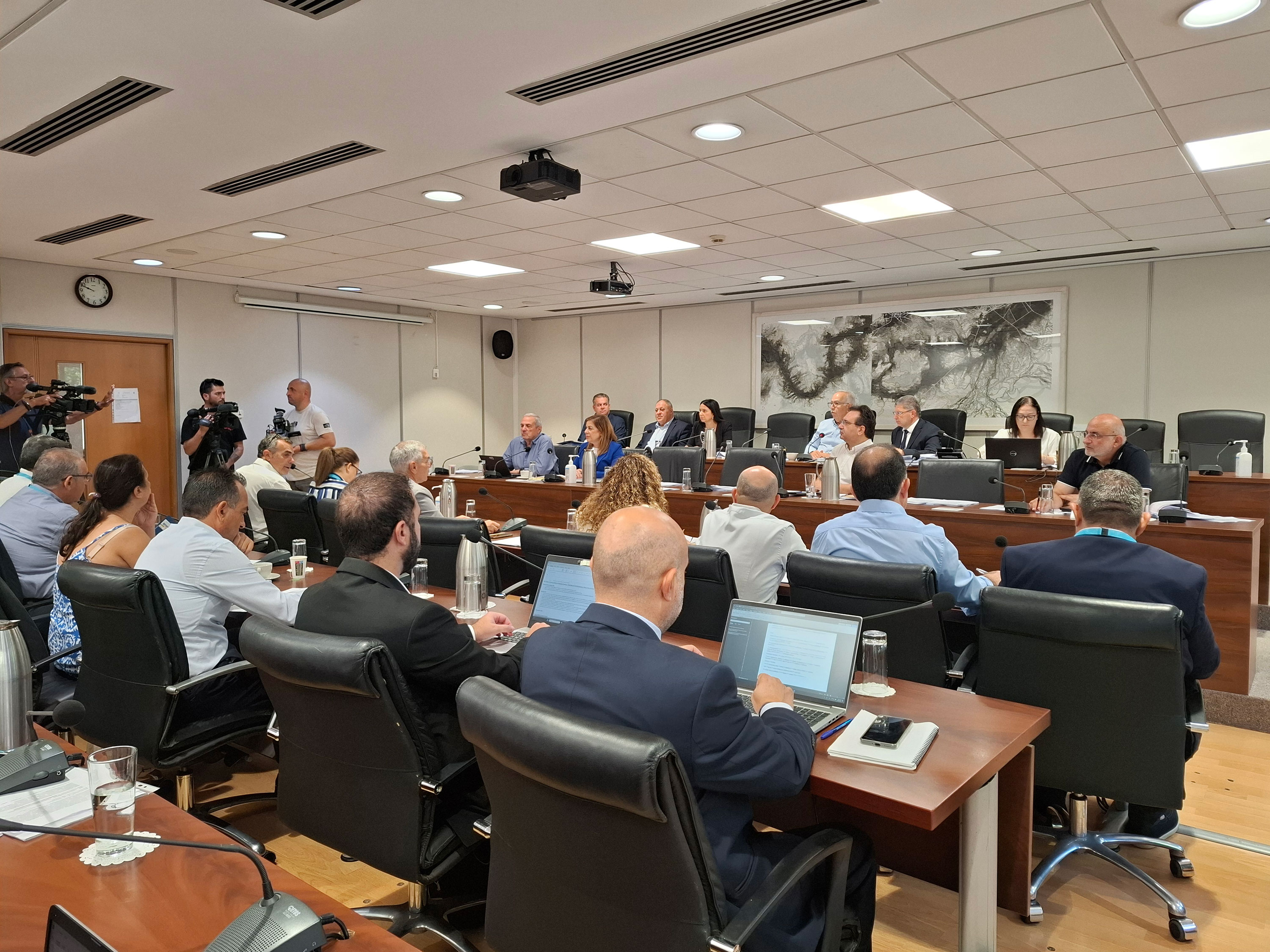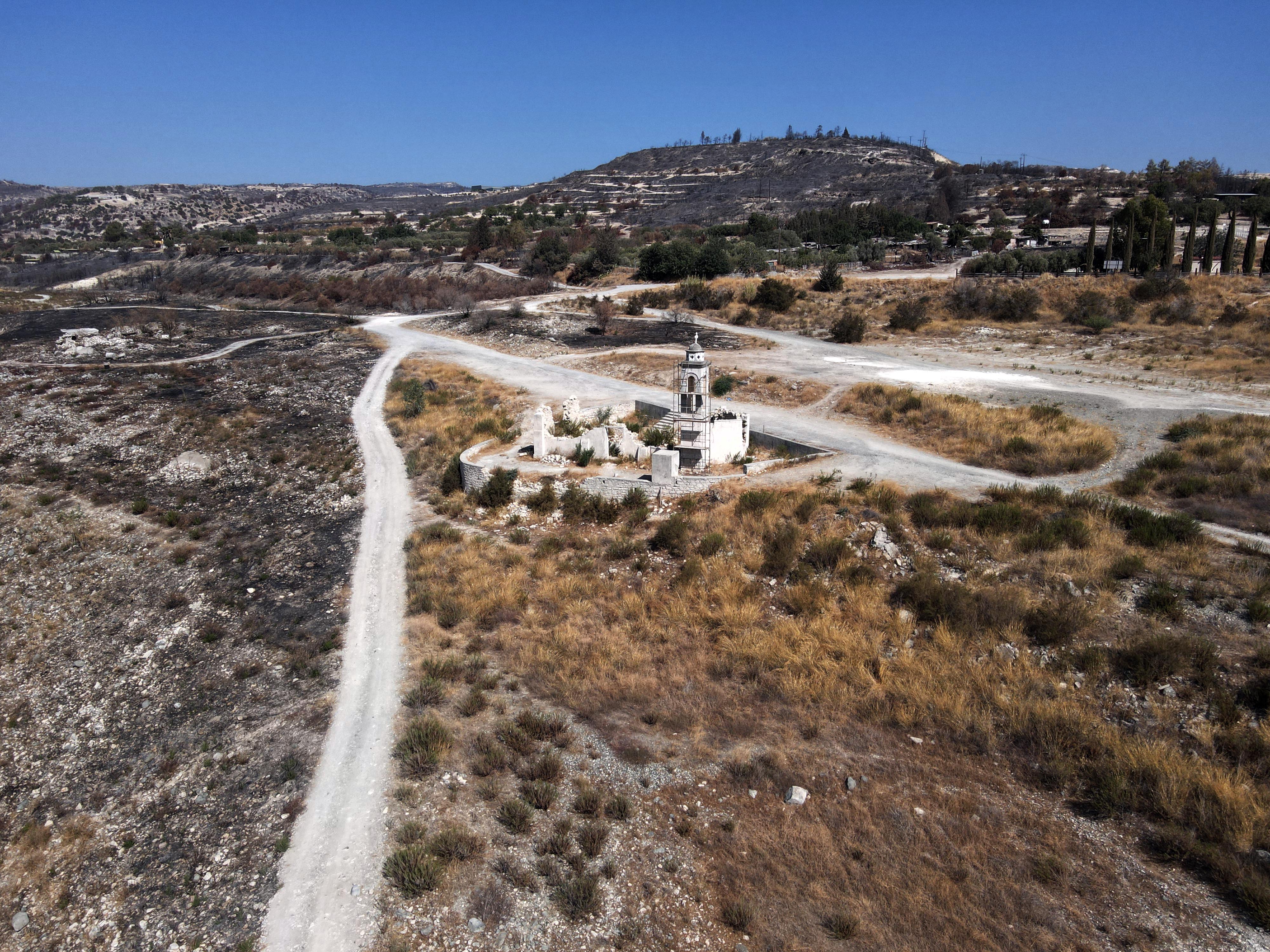Only three of the island’s water dams have contingency plans in case of catastrophic failure, while almost two-thirds of the water bodies are in bad shape, the auditor-general’s office cautioned on Thursday.
Audit Office officials were presenting their findings to MPs. The Audit Office has just released a report into the overall management of the island’s water resources, the last one having been done back in 2016.
In parliament, the district self-governance organisations (EOA) asked for economic assistance so they can deal comprehensively with the loss of water from reservoirs and ensure adequate water supply. Farmers meanwhile reiterated their demand for the establishment of a single water management organisation.
“We are located in a region experiencing intense drought, and the situation is worsening,” commented auditor-general Andreas Papaconstantinou.
“There are no easy solutions.”

Akis Kikas, a senior official at the Audit Office, went through the main findings of the report.
He cited, for instance, the fact that an advisory water management committee does not provide the anticipated guidance to local organisations or authorities. The committee convenes only once or twice a year.
The management of funds also leaves a great deal to be desired. Regarding the 15-year plan (2016 to 2030) for water development, it provided for spending €1.5 billion on a total of 60 different projects.
But to date, said Kikas, only 14 of the 60 projects have been implemented – although most of the funds have been spent.
The official sounded the alarm over the state of water reservoirs.
“We observe shortcomings in matters of safety, as no comprehensive management system exists,” he stated.
Many of the dams are old and require immediate assessment.
Only three dams – Yermasoyia, Polemidia and Tamassos – have contingency plans in place for where to divert the water in case of catastrophic failure.
Even the largest dam, at Kouris, lacks such a contingency plan.
Meantime the Water Development Department does not have enough qualified inspectors. A number have retired, and their know-how has not been passed on to their replacements.
What’s more, over the past decade no independent inspection of the large reservoirs has taken place, despite this being provided by law.
And many private dams operate without a license. They likewise have not undergone inspection.
On this point, Greens MP Charalambos Theopemtou censured the Water Development Department, responsible for checking if reservoirs have the required permits.
Desalination was another issue flagged by the Audit Office.
Although desalinated water has helped mitigate reliance on rainfall, said Kikas, the extensive use of desalination has given rise to a number of problems. These include emissions, increased cost of electricity and potable water, and corrosion to water heaters.
The official cautioned that 64 per cent of the island’s bodies of water are in poor condition. The biggest threats to water quality are urban and livestock waste, nitrate pollution and salinisation.
In addition, several bore holes operate illegally.
“We don’t know exactly how many there are of them, and what water is pumped from them, while in many cases the pumped water does not get invoiced,” the official noted.
Regarding water loss from the overall grid, Kikas said these were at “acceptable levels”.
Water Development Department data show water levels in the dams at alarmingly low levels. The Kouris reservoir now holds just 11.3 per cent of capacity.






Click here to change your cookie preferences